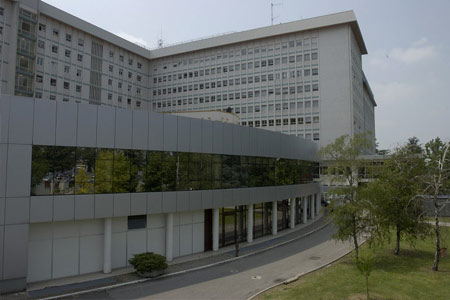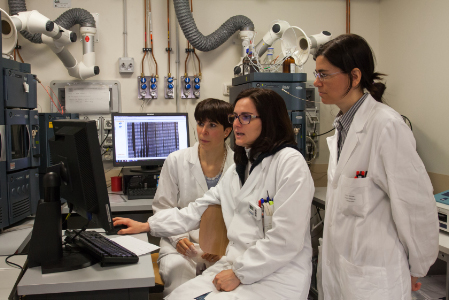In this project we proposed a multiparametric approach that allowed us to analyze the role of glycans in the control of suppressive action exerted by CD4+CD25+ T cells during EAE. Recent data by Huehn et al. demonstrated that a subpopulation of CD4+CD25+ Tregs expressing alphaE integrin and able to bind E-and P-selectin (both PSGL-1 ligands) preferentially migrates in sites of inflammation and block the development of autoimmune arthritis. Preliminary data obtained in our laboratory strongly indicate that PSGL-1 (P-selectin glycoprotein ligand-1) and the fucosylation of its glycans by fucosyltransferases (FucTs) are involved in the suppressor activity mediated by CD4+CD25+ cells during MOG-induced EAE. In this project we studied the role of PSGL-1 and FucTs in the suppression of T cell functions, which verifies at cell-cell contact with Tregs. Moreover, we clarified the role of PSGL-1 and FucTs, as well as the combination of selectins-mucins and integrins-immunoglobulins dictating the selective recruitment of Tregs cells into the inflamed brain. Finally, we studied how to increase the adhesive capabilities of Tregs in order to potentate the suppressor activity during autoimmune attack of the brain.







